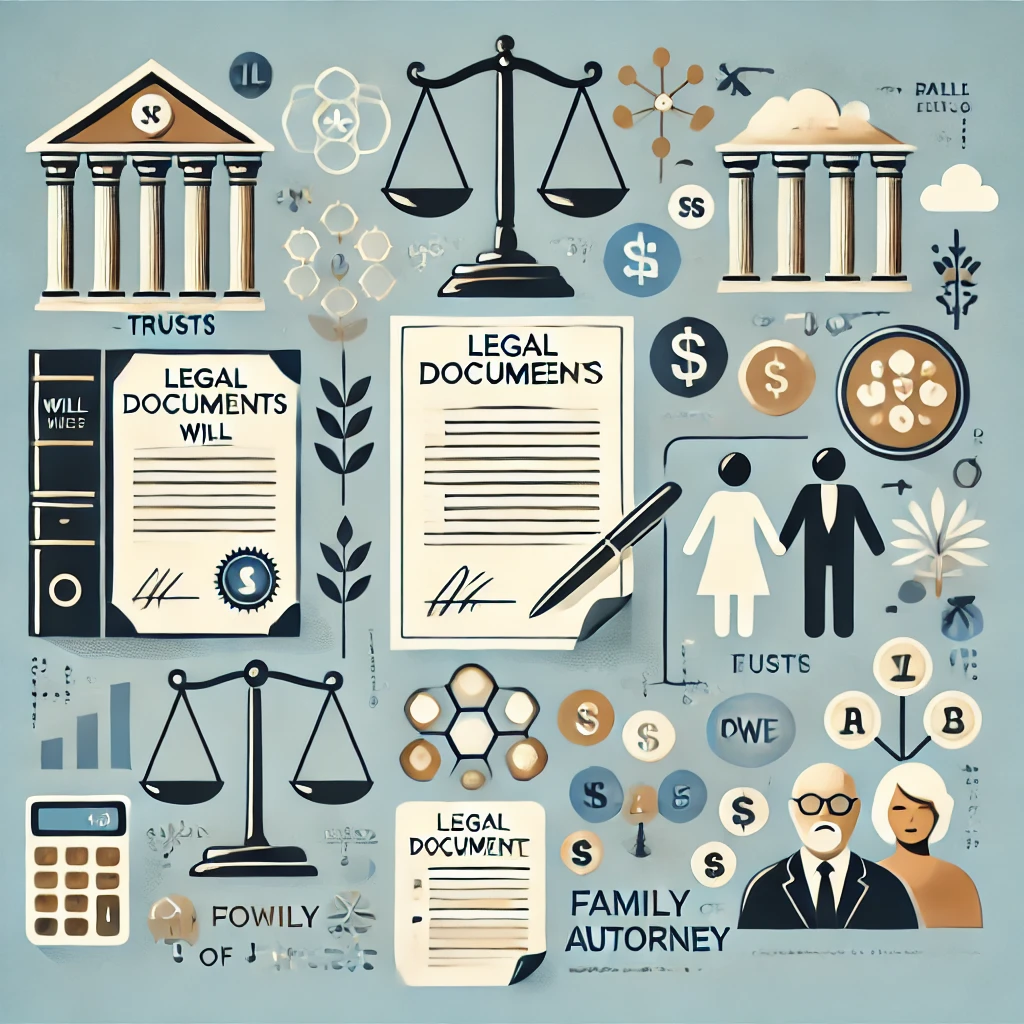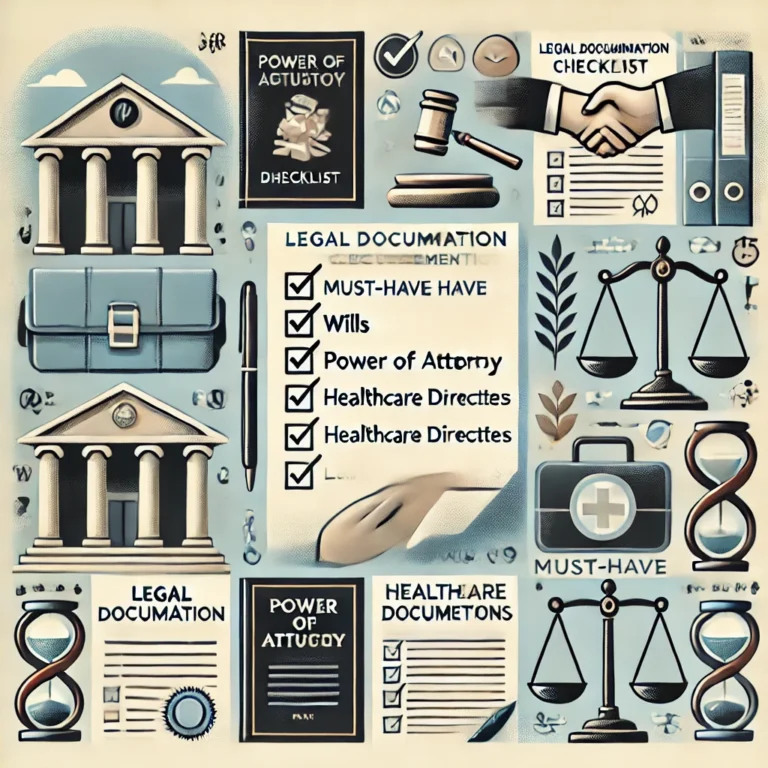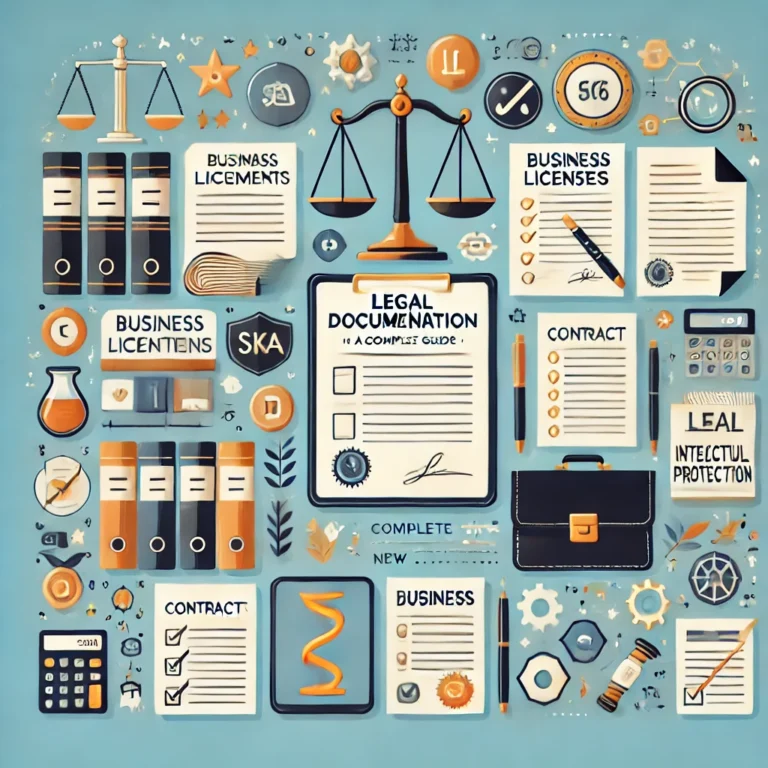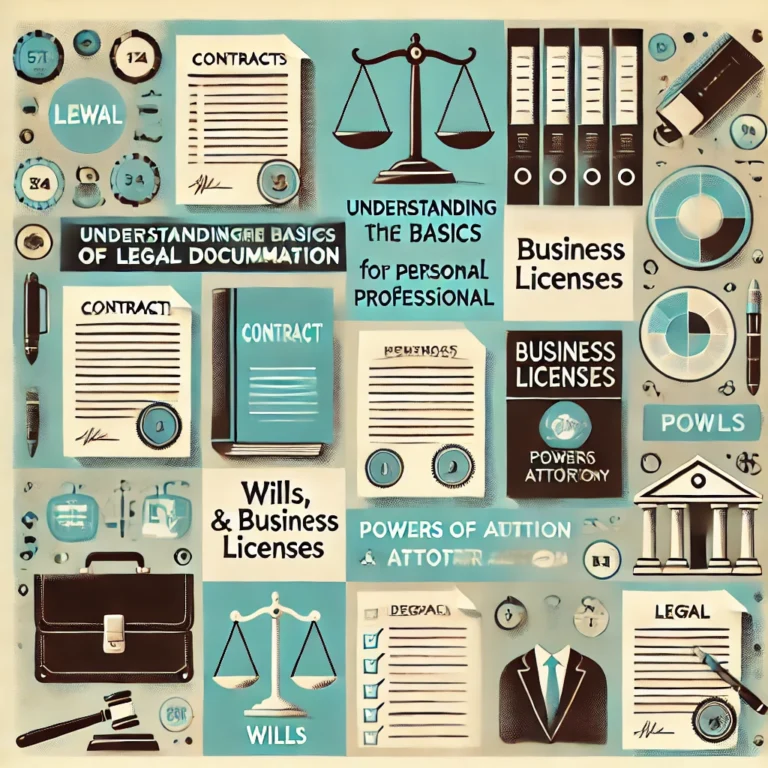The Importance of Legal Documentation in Estate Planning
Estate planning is one of those things we often push to the back burner. After all, who really wants to think about what happens after they’re gone? But here’s the thing: estate planning isn’t just about wills and who gets the family heirlooms. It’s about protecting your loved ones, ensuring your wishes are respected, and making things easier for those you leave behind. The core of any good estate plan is legal documentation. Without it, even the best-laid plans can unravel.
In this article, we’re diving deep into the importance of legal documentation in estate planning. We’ll cover why it’s crucial, what key documents you need, and how having everything in order can save you and your family from unnecessary stress and confusion.
What Is Estate Planning?
Let’s start with the basics. Estate planning is the process of organizing your assets and deciding how they’ll be distributed after your death. This can include everything from your home and savings accounts to personal items like jewelry or art collections. But it’s not just about the money. Estate planning also covers how you’ll be cared for if you’re unable to make decisions for yourself while you’re alive, such as in the case of serious illness or injury.
Why Is Estate Planning Important?
Some people mistakenly believe that only the wealthy need an estate plan, but that couldn’t be further from the truth. Whether you own a massive estate or a small apartment, an estate plan ensures that your wishes are honored. It can prevent family disputes, reduce taxes, and make the transition easier for everyone involved.
Without a solid plan, your assets might not go where you intend them to. Worse, your family could be left navigating complicated legal proceedings in probate court. And let’s be real, nobody wants to deal with that kind of stress during an already emotional time.
The Role of Legal Documentation in Estate Planning
Now, let’s get to the meat of it: legal documentation. This is the backbone of estate planning. Without proper legal documents, your wishes might not be legally binding. Having these documents in place ensures that the courts and your loved ones know exactly what your intentions are.
Key Legal Documents in Estate Planning
- Last Will and Testament Your will is probably the most well-known estate planning document. It outlines who will inherit your assets and can even include instructions for guardianship of minor children. Without a will, state laws will decide how your assets are distributed, which might not align with your wishes.
- Living Trust A living trust allows you to place your assets into a trust while you’re still alive, which can then be transferred to your beneficiaries without the need for probate. This can save time and money, and keep your affairs private.
- Power of Attorney A power of attorney (POA) gives someone the legal authority to make decisions on your behalf if you become incapacitated. There are different types of POAs, but they generally fall into two categories:
- General Power of Attorney: Grants broad authority to the appointed person.
- Medical Power of Attorney: Specifically for making healthcare decisions if you’re unable to do so yourself.
- Living Will or Advance Healthcare Directive This document outlines your healthcare wishes in case you’re unable to communicate them yourself. It can cover things like life support preferences and other end-of-life decisions. Having this in place spares your loved ones from making difficult choices during emotional times.
- Beneficiary Designations Many financial accounts, like retirement accounts and life insurance policies, allow you to name a beneficiary. These designations typically override what’s written in a will, so it’s important to keep them up to date.
- HIPAA Authorization A HIPAA authorization allows your loved ones to access your medical information in the event that you’re incapacitated. Without it, they might not be able to speak with doctors or make informed decisions about your care.
- Guardianship Designations If you have minor children, it’s essential to designate a guardian in your will or trust. This ensures that your children will be cared for by someone you trust if something happens to you.
Avoiding Probate: Why It Matters
Probate is the legal process through which a court oversees the distribution of your assets after death. While it’s not always avoidable, it can be time-consuming and expensive. Proper legal documentation, such as a living trust, can help your estate bypass probate altogether, allowing your beneficiaries to receive their inheritance without delays or additional legal fees.
The Cost of Not Having Proper Legal Documentation
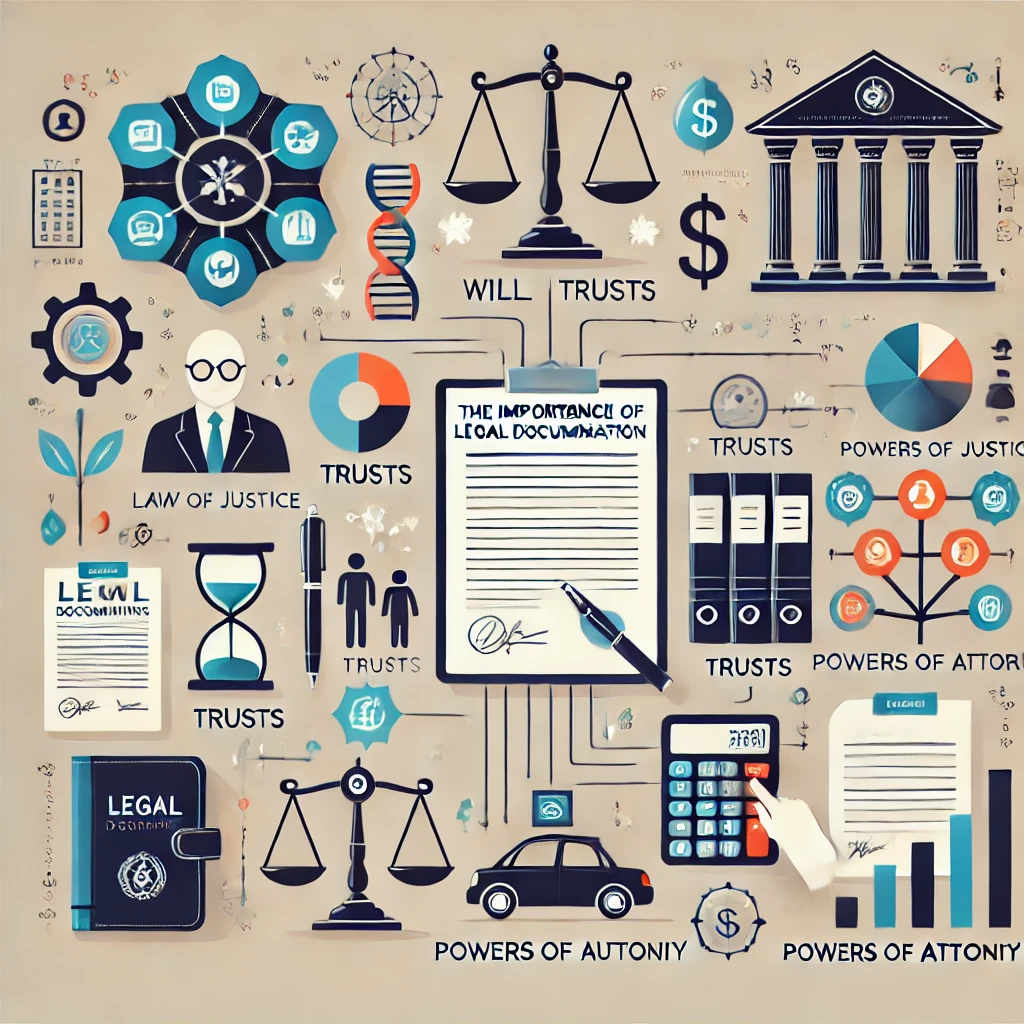
Without proper legal documents in place, you risk leaving your estate in disarray. Imagine leaving your family with nothing but uncertainty, unsure of your wishes and forced to navigate the court system. Even worse, your assets might end up going to people you never intended to benefit.
This can lead to disputes among family members, potentially tearing them apart. It also often results in unnecessary legal fees and taxes that could have been avoided with proper planning.
Protecting Your Loved Ones Through Estate Planning
Estate planning is more than just a financial matter; it’s about protecting the people you care about. With the right legal documentation, you ensure that your family is taken care of, even when you’re no longer around to do it yourself.
From ensuring that your children are cared for by a trusted guardian to making sure your assets are distributed according to your wishes, legal documents serve as your voice when you’re no longer able to speak for yourself.
How to Create an Effective Estate Plan
Creating an estate plan might seem daunting, but it doesn’t have to be. The first step is gathering the necessary documents, which we’ve outlined above. Then, consult with an experienced estate planning attorney to ensure everything is legally sound. This is not a “one-size-fits-all” situation—your plan should be tailored to your specific needs and goals.
When to Update Your Estate Plan
Life changes, and so should your estate plan. Any time you experience a significant life event, such as marriage, divorce, the birth of a child, or the purchase of a new property, it’s important to review and possibly update your estate plan. This ensures that it remains aligned with your current wishes and situation.
The Benefits of Regularly Reviewing Your Documents
Just like any other important aspect of life, estate planning is not a “set it and forget it” task. Regularly reviewing your legal documents ensures that they remain accurate and up to date. This is especially crucial if you experience changes in your personal or financial circumstances.
Common Estate Planning Mistakes to Avoid
Estate planning can be tricky, and there are a few common pitfalls you’ll want to avoid:
- Procrastinating – Putting off estate planning can lead to unnecessary complications. Start sooner rather than later.
- Not Updating Beneficiaries – Make sure your beneficiary designations on financial accounts are up to date.
- Not Considering Taxes – Estate taxes can take a big bite out of your assets. Plan ahead to minimize the tax burden on your heirs.
- Failing to Plan for Incapacity – It’s not just about what happens after you’re gone. Make sure you have a plan in place for who will make decisions if you’re incapacitated.
- DIY Estate Planning – While DIY wills and estate plans might seem like a cost-saving measure, they often lead to more problems than they solve. It’s best to consult with a professional.
The Importance of Professional Help
There’s no denying that estate planning can be complex. While you can create a basic plan on your own, working with an attorney ensures that everything is legally binding and tailored to your specific situation. A professional can help you navigate tricky issues like tax laws and family dynamics, and ensure that your plan holds up in court.
Conclusion: Peace of Mind Through Proper Planning
Estate planning might seem overwhelming, but it’s one of the most important things you can do for your loved ones. The right legal documentation ensures that your wishes are honored, your family is taken care of, and unnecessary complications are avoided. In the end, estate planning is about peace of mind—both for you and the people you care about.
FAQs
1. What happens if I die without a will?
If you die without a will, state laws will determine how your assets are distributed. This process, known as intestacy, might not align with your personal wishes.
2. How often should I update my estate plan?
It’s a good idea to review your estate plan every 3-5 years, or after any major life changes, such as marriage, divorce, or the birth of a child.
3. Can I change my will after it’s written?
Yes, you can update or change your will at any time, as long as you are mentally competent. This is known as a “codicil,” or you can create a new will altogether.
4. What’s the difference between a will and a living trust?
A will outlines how your assets will be distributed after your death, while a living trust can manage your assets during your lifetime and after your death, often avoiding probate.
5. Is estate planning only for the wealthy?
No! Estate planning is important for everyone, regardless of the size of your estate. It’s about ensuring your wishes are honored and protecting your loved ones.

